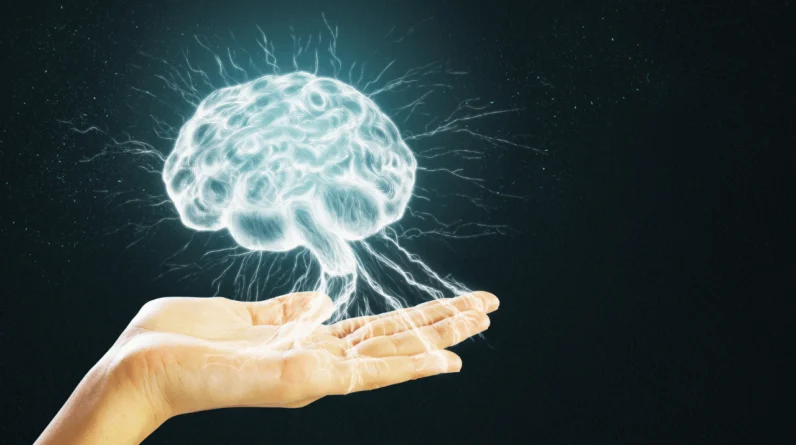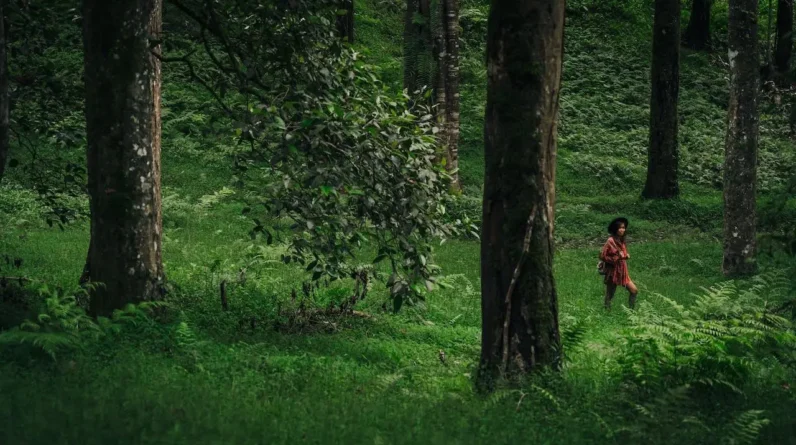
You ever notice how we obsess over squats, steps, macros, and “getting our body right,” but rarely stop to think,
Hey, what about my brain? What about the part of me steering the whole operation?
We stretch hamstrings and strengthen glutes, yet let our thinking run wild, our focus scatter like confetti, and our nervous system sprint on high alert like it’s training for an Olympic panic event.
And honestly? It’s not because we’re weak or undisciplined.
It’s because no one taught us that the brain (just like your biceps) needs reps, rest, and training to grow. We assume clarity, resilience, and emotional strength just happen as we age.
But mental muscles don’t strengthen with time alone. They strengthen with use, challenge, recovery, and intention.
The beautiful thing? You don’t need a gym membership or a perfectly curated morning routine to start. You just need awareness, curiosity, and maybe a little willingness to feel awkward while learning new mental “moves.”
This is the mental gym nobody talks about.
And once you start training here… really training… life gets clearer, steadier, softer, and somehow…braver. Not perfect. Not polished. Just stronger from the inside out.
What It Really Means to “Flex” Your Brain
Flexing your brain isn’t some hustler mentality thing. it’s not grinding or forcing yourself to “think positive” until your face hurts. That’s like doing bicep curls with terrible form and wondering why your shoulders ache and nothing grows.
Real brain flexing is about building mental strength that actually feels good in real life:
- The strength to focus when the world screams for your attention
- The courage to stay with discomfort instead of numbing or running
- The ability to shift perspectives instead of clinging to old stories
- The patience to respond instead of react
- The softness to offer self-compassion instead of self-attack
Think of your brain like a muscle system. Neuroplasticity is your built-in personal trainer, always ready to help you get stronger, create new pathways, and ditch ones that aren’t serving you anymore.
Every thought, every reaction, every little emotional pattern? It’s a rep.
Snap at your partner because your nervous system is fried? Rep.
Pause, breathe, and choose a calmer response? Also a rep.
Catch yourself spiraling and gently redirect? Yep, another rep.
And no shame here: some muscles are naturally weaker if nobody ever taught you how to build them. That doesn’t make you behind; it makes you human.
But once you realize your mind can be trained, strengthened, stretched, and reshaped… everything shifts. You stop feeling like life is happening to you and start realizing you’re shaping it, one tiny rep at a time.
The Hidden Muscles of the Mind
If your brain had a gym map, it wouldn’t just be treadmills and deadlifts. It’d look more like:
- a Focus rack
- a Resilience track
- a Flexibility mat
- a Creativity corner
- a Self-Compassion lounge (with soft lighting and snacks, obviously)
We don’t usually talk about these muscles because society worships busy minds, not strong minds. But busy doesn’t equal strong. A nervous system buzzing with stress isn’t ambitious; it’s exhausted. A brain that refuses to shift viewpoints isn’t confident; it’s cramped.
So, consider this your behind-the-scenes tour of the mental gym most people never walk into.
The Focus Muscle
Focus is the quiet superpower almost everyone is losing. Our brains are constantly pinged, poked, and pulled in 900 directions… notifications, DMs, ads screaming buy me, random thoughts about work embarrassments at 2 a.m. (just me?).
We live in a world built to fracture attention, then shame us for having a scattered mind. But focus isn’t about forcing yourself to “try harder.” It’s about training your attention like you’d train a muscle – gently, consistently, and with a bit of grit.
Why Focus Matters
- It helps you finish what you start
- It calms anxiety (less mental chaos = less internal panic)
- You make clearer decisions
- You actually feel present instead of hovering outside your life
Focus builds confidence. When you can follow through, even on tiny things, you remember: Oh. I trust myself. I can do hard things in small pieces.
Everyday Focus Reps
Try these mini-workouts:
- 60-second breathing reset before you touch your phone in the morning
- One-task rule: pick ONE thing and finish it before bouncing
- Micro-sprints: 10 minutes of deep work, zero interruptions
- Digital weights: silence notifications for one hour
These aren’t punishments. They’re acts of reclaiming your mind. You wouldn’t let someone yank your dumbbells mid-set at the gym. Don’t let distractions do it here.
The Resilience Muscle
Resilience isn’t about being unbothered.
It’s not white-knuckling through life or pretending stress doesn’t sting. It’s the ability to bend without breaking, wobble without collapsing, get knocked sideways and still find your footing again.
Life throws emotional weight plates at everybody. Some people dodge; some people crumble; some people lift, a little shaky maybe, but still rising.
That’s resilience. It’s built, not born.
What Resilience Really Looks Like
- Feeling the overwhelm and choosing one small step anyway
- Taking a break instead of quitting
- Saying “this hurts and I’m still here”
- Repairing instead of running
- Letting emotions move through instead of bottling them like emotional Tupperware
Resilience is soft strength. It’s courage with kindness. And sometimes the bravest move is not powering through, but pausing.
Resilience Reps
- Sit with discomfort for 30 seconds before reacting or escaping
- Practice “Name It to Tame It” when emotion spikes
- I feel anxious. My chest is tight. That’s okay; I’m here.
- Do one tiny courageous thing daily (send the email, make the call, speak up)
- Create a “calm kit” for stress moments (words, breath, touch, grounding)
You don’t build resilience by never falling. You build it by falling, resting, and learning how to rise without self-blame.
The Flexibility Muscle
Mental flexibility is underrated. It’s like emotional yoga… being able to bend without snapping, stretch beyond old beliefs, and move when life doesn’t follow your script (and wow, does it love rewriting our plans).
This is the art of shifting perspective instead of clinging to the same story you’ve always told yourself. It’s the quiet skill of asking, “Is this still true? Does this still serve me?”
Rigid thinking feels safe. Familiar. But it also traps us. Flexible thinking? That’s where possibility lives.
Why Flexibility Matters
- You adapt faster when life pivots (and life will pivot)
- You stop arguing with reality and start participating in it
- You loosen old identities and let yourself evolve
- You become less reactive, more creative, and way harder to knock off center
Honestly, flexibility is freedom. The freedom to change your mind. Adjust. Soften. Evolve without shame for who you were before.
Flexibility Reps
Try these gentle but powerful stretches:
- When frustration hits, ask: What else could be true here?
- Challenge one old belief a week
- Practice “yes, and…” when your plans shift
- When you catch yourself spiraling, breathe and pivot: Maybe this isn’t falling apart. Maybe it’s rearranging.
Be patient with yourself. Flexibility isn’t weakness; it’s strength in motion.
The Curiosity & Self-Compassion Muscles
These two muscles are like the warm-up and cool-down of mental training. Without them, everything feels harsher and heavier than it needs to.
Curiosity opens the door. Self-compassion lets you walk through it without collapsing under perfection or shame.
Curiosity: The Anti-Judgment Muscle
Curiosity is where healing begins. It gently asks:
- Why do I react this way?
- What’s really going on under this irritation?
- What is this feeling trying to tell me?
- What if I tried a different way?
Judgment shuts down growth. Curiosity invites it.
You don’t have to know the answer. You just have to be willing to explore.
Self-Compassion: Strength Without Self-Attack
Some of us are walking around trying to get mentally strong while beating ourselves up like it’s motivation. Spoiler: shame isn’t a workout plan. It’s a shutdown plan.
Self-compassion isn’t coddling; it’s fuel. It keeps you going when old habits flare up or you fall off the wagon. Imagine training at a gym where the coach screamed insults every time you tired out. You’d quit. Fast.
Your brain deserves a gentler coach.
Curiosity & Compassion Reps
- Swap “What’s wrong with me?” for “What’s happening inside me?”
- When you slip, say: I’m learning. This is a rep.
- Place a hand on your heart during hard moments… physical tenderness rewires emotional harshness
- Ask yourself: What would I say to a friend here? Then say that to you
Remember: hard on the challenge, soft on yourself. That’s how you grow without breaking.
Daily Workouts for a Stronger Mind
Mental strength isn’t built in big dramatic breakthroughs. It’s built in tiny reps you repeat when no one’s watching. Think of these as small daily “brain flexes”:
- 60-Second Breath Reset
Inhale 4, hold 2, exhale 6. Tell your nervous system: We’re safe. - One-Task Focus
Pick one thing. Finish it. Completion = confidence. - One Micro-Courage Act
Send the text. Ask the question. Take the step. Courage grows quietly. - Name the Feeling
Say it out loud: I feel anxious / annoyed / overwhelmed. Naming = calming. - Phone-Free Pockets
Start with 15 minutes. Watch your mind soften. - 10 Minutes of Creativity
Journaling, doodling, voice notes, playing piano… whatever feels alive. - End-of-Day Compassion Check
Ask: Did I try? Did I show up? Trying counts. Survival days count too.
These reps build real strength – slow, steady, and human.
Welcome to Your Inner Mental Gym
You don’t need a perfect morning routine or monk-level discipline to build a strong mind. You just need small reps, done imperfectly, over time.
Tiny moments like…
- One deep breath instead of spiraling
- One compassionate thought instead of self-attack
- One pause before reacting
- One brave action instead of avoidance
This is how your mind gets stronger… gradually, quietly, beautifully.
You don’t have to sprint. Just don’t stop walking. Show up for yourself in tiny ways. Flex your brain a little every day. And watch what happens when your inner strength starts catching up to the life you’re ready to live.
You don’t need to be perfect to begin. You just need to begin.







